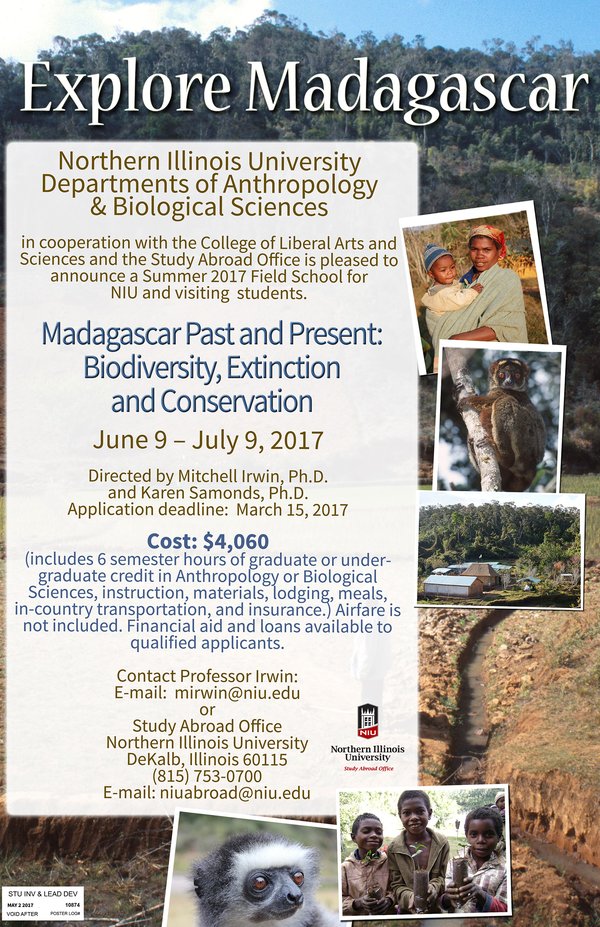
Submitted 27 January 2017 by Mitch Irwin and Karen Samonds
Field school sexual harassment policy: http://www.niu.edu/sexualmisconduct/overview/misconduct/harassment.shtml

Northern Illinois University, the University of Antananarivo and the NGO Sadabe are pleased to offer this one-month, six-credit field school from June 9 - July 9, 2017.
The primary purpose of this program is to provide participants with the opportunity to learn first-hand about primate biodiversity, extinction, forest fragmentation and conservation in Madagascar, one of the world’s foremost biodiversity hotspots. The program will focus on building an experiential knowledge of:
1. Madagascar’s existing biodiversity, especially its >100 primate species. 2. The 17 primate species that have been lost to extinction in the past few thousand years. 3. The complexities and challenges of conservation in this third-world nation.
Students and instructors will begin the field school with a field trip to Andasibe, a biologically rich rainforest with active tourism and development programs. Then, in Antananarivo, we will hear lectures about Madagascar’s evolutionary history, including the giant extinct lemurs, observe and study fossils of extinct lemurs, as well as learn about data collection techniques for studying the behavior and ecology of living lemurs. Third, we will travel to Tsinjoarivo where we will spend the majority of our trip. Here students will see the lemurs that Dr. Irwin has been studying for 17 years, and apply ecological and behavioral sampling techniques as they work on targeted brief research projects in the surrounding forests. While in this remote village, student groups will also learn about and participate in local conservation efforts and meet local community associations. Finally, we visit Sambaina, a subfossil lemur site excavated by Dr. Samonds since 2014, and experience the landscape tranformations that have taken place since the extinction of the giant lemurs. At the end of the course, students will present preliminary results at the University of Antananarivo.
This course is intended to expand upon students’ theoretical background in either primatology, biology, or conservation biology.
Copyright © 2025 American Association of Biological Anthropologists.
Site programming and administration: Ed Hagen, Department of Anthropology, Washington State University